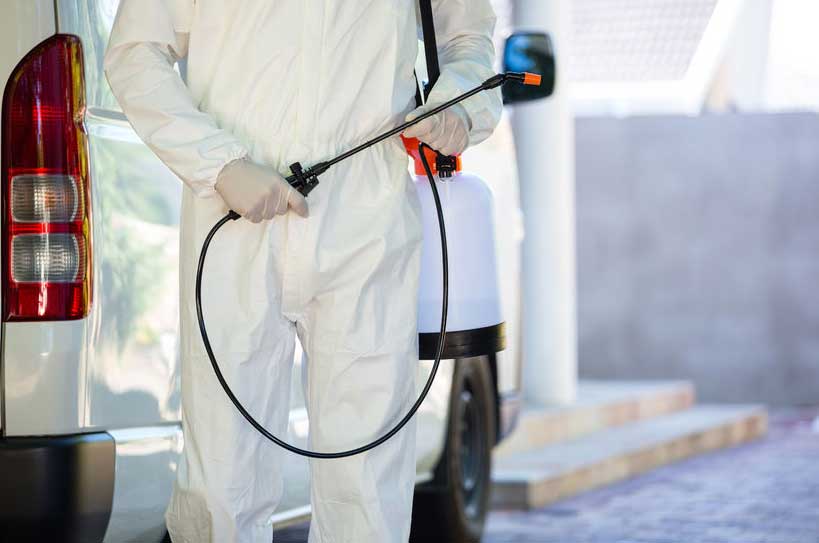Whether you realize it or not, your life has been affected by herbicides. Herbicides have been used for decades to kill weeds, and they are used in our gardens, on our foods, and in many other settings, such as vineyards. While herbicides can provide several benefits to growers of crops, gardens, or lawns, they can also cause severe health consequences.
The herbicide Roundup has long been popular among growers ranging from commercial enterprises to landscapers. It has also been linked to Non-Hodgkin’s Lymphoma (“NHL”), a type of blood cancer that includes several types of lymphoma. Recent reports indicate that the maker of this defective product injuries has not only known about the potential hazards to users, but they have sought to influence regulatory policies of the federal government.
What Makes Roundup So Dangerous?
To understand why Roundup poses a threat to users, you must first understand the ingredients. Roundup is made using glyphosate, water, and surfactant. Glyphosate, or gly, is the key herbicide used in the mixture and has been linked by a growing body of science to the development of many types of cancer, including Non-Hodgkin’s Lymphoma.
The surfactant is used in the mixture to “flatten” the solution so it stays on the plant, and then bores in and kills it. Monsanto, the maker of Roundup, uses POEA (polyethoxylated tallow amine) as its surfactant. POEA has also been identified as a cancer-causing agent, though its use in the solution is currently being phased out.
According to the New York Times, federal court documents reveal that Monsanto had ghostwritten research that was attributed to academics and worked with at least one senior official at the EPA (Environmental Protection Agency) to silence an evaluation of the harmful effects of Roundup.
Who is Affected by Roundup?
Roundup comes in many different forms. Varieties are available for different climates, industries, and uses around the home. This means that many of us are exposed to some variety of Roundup, either directly or indirectly. Farmers, landscapers, and industrial workers are more likely to have direct exposure, while those of us whose yards or foods are treated with the herbicide might have been exposed indirectly.
Direct exposure to the carcinogenic components of herbicides obviously poses a greater risk for the development of Non-Hodgkin’s Lymphoma, but it is possible to develop Non-Hodgkin’s Lymphoma through indirect exposure to Roundup.
The attorneys at the accident and injury law office of Terry Bryant are meeting with anyone diagnosed with Non-Hodgkin’s Lymphoma to determine if Roundup exposure could be the underlying cause. If you or a loved one has been exposed to Roundup and suffer from Non-Hodgkin’s Lymphoma, contact our office to schedule a free consultation.
We understand how severely Non-Hodgkin’s Lymphoma can impact the lives of sufferers. This condition can be fatal, but even survivors face large medical bills, pain, suffering, lost productivity, and lost wages. Dealing with the personal injury symptoms of Non-Hodgkin’s Lymphoma can exacerbate these challenges.
Our team is here to help you find out more about your legal options. You can reach out to the Accident and Injury Law Firm of Terry Bryant today by filling out our online contact form or calling us at 1 (800) 444-5000.
Attorney Terry Bryant
 Terry Bryant is Board Certified in personal injury trial law, which means his extensive knowledge of the law has been recognized by the Texas Board of Legal Specialization, setting him apart from many other injury attorneys. The 22 years he spent as a Municipal Judge, Spring Valley Village, TX also provides him keen insight into the Texas court system. That experience also helps shape his perspective on personal injury cases and how they might resolve. This unique insight benefits his clients. [ Attorney Bio ]
Terry Bryant is Board Certified in personal injury trial law, which means his extensive knowledge of the law has been recognized by the Texas Board of Legal Specialization, setting him apart from many other injury attorneys. The 22 years he spent as a Municipal Judge, Spring Valley Village, TX also provides him keen insight into the Texas court system. That experience also helps shape his perspective on personal injury cases and how they might resolve. This unique insight benefits his clients. [ Attorney Bio ]


 Terry Bryant is Board Certified in personal injury trial law, which means his extensive knowledge of the law has been recognized by the Texas Board of Legal Specialization, setting him apart from many other injury attorneys. The 22 years he spent as a Municipal Judge, Spring Valley Village, TX also provides him keen insight into the Texas court system. That experience also helps shape his perspective on personal injury cases and how they might resolve. This unique insight benefits his clients. [
Terry Bryant is Board Certified in personal injury trial law, which means his extensive knowledge of the law has been recognized by the Texas Board of Legal Specialization, setting him apart from many other injury attorneys. The 22 years he spent as a Municipal Judge, Spring Valley Village, TX also provides him keen insight into the Texas court system. That experience also helps shape his perspective on personal injury cases and how they might resolve. This unique insight benefits his clients. [ 

